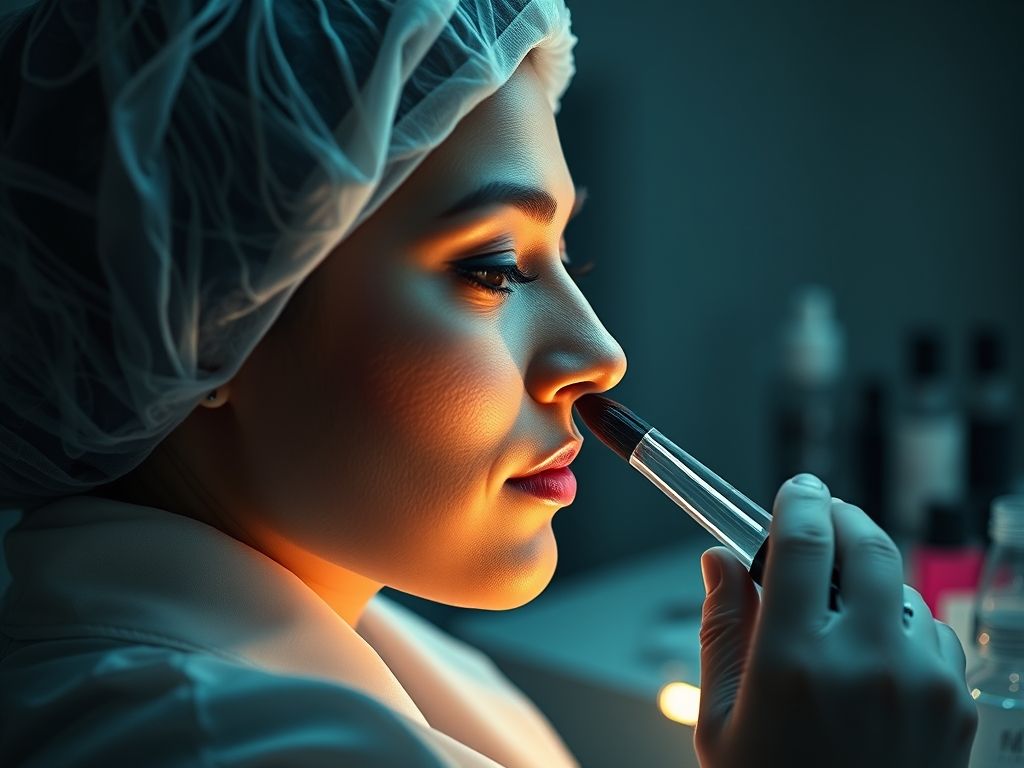What is Makeup Science?
Makeup Science is an interdisciplinary field that combines art, chemistry, and dermatology to understand how cosmetic products work on the skin. It encompasses the formulation, application, and effects of makeup, focusing on enhancing beauty while ensuring skin health. As a growing area of interest, especially in permanent makeup and aesthetic beauty services, understanding makeup science is essential for women seeking trusted and long-lasting beauty procedures.
The Importance of Makeup Science
In Massachusetts, women are increasingly turning to permanent makeup solutions to save time and maintain a polished look. Knowing the science behind these products can help you make informed choices. Makeup science not only addresses the aesthetic aspects but also considers the ingredients used in formulations, their interactions with the skin, and their long-term effects. This knowledge can empower you to choose products that are not only beautiful but also safe and effective.
Understanding Makeup Ingredients
Makeup products are often comprised of a variety of ingredients, each with specific functions. Here’s a breakdown of common cosmetic ingredients and their purposes:
- Emollients: Help to soften and smooth the skin.
- Humectants: Attract moisture to the skin, keeping it hydrated.
- Preservatives: Prevent the growth of bacteria and mold, extending the product’s shelf life.
- Colorants: Provide color and pigmentation to makeup products.
Understanding these ingredients allows you to select products that suit your skin type and needs, especially when considering permanent makeup options such as microblading or lip tinting.
Applications of Makeup Science in Permanent Makeup
Permanent makeup procedures, such as eyebrow tattooing and eyeliner enhancements, rely heavily on the principles of makeup science. Here’s how:
- Color Theory: Understanding color theory is crucial in selecting the right pigments for your skin tone, ensuring that the results look natural.
- Skin Anatomy: Knowledge of skin layers helps practitioners ensure that pigments are applied at the correct depth for lasting results.
- Allergies and Sensitivities: Makeup science helps identify potential allergens in pigments, allowing for safe procedures tailored to individual skin types.
For example, a skilled technician in Wilmington or Boston who understands these aspects will be able to create a customized look that not only enhances your features but also minimizes risks.
Real-World Examples and Case Studies
Let’s explore some practical applications of makeup science in real-world scenarios:
Get more content like this!
Sign up to receive updates and new terms first hand.
- Case Study: Microblading in Boston – A local beauty professional uses a combination of pigment science and skin anatomy knowledge to achieve natural-looking brows for clients.
- Case Study: Lip Blushing in Massachusetts – An aesthetician applies color theory principles to enhance lip color while considering the client’s natural undertones.
These examples illustrate how the principles of makeup science translate into effective beauty solutions.
How to Utilize Makeup Science in Your Daily Life
Here are some actionable tips to incorporate makeup science into your beauty routine:
- Research ingredients: Before purchasing products, check the ingredient list to ensure they suit your skin type.
- Consult professionals: Seek advice from beauty experts who understand makeup science to get personalized recommendations.
- Stay informed: Keep up with new developments in cosmetic formulations and techniques.
By applying these principles, you can enhance your beauty routine and make informed choices about permanent makeup procedures.
Related Concepts in Makeup Science
Makeup science overlaps with several related fields, enhancing your understanding of beauty and skincare:
- Dermatology: The study of skin health and diseases, crucial for understanding how makeup interacts with skin.
- Cosmetic Chemistry: Focuses on the formulation of cosmetic products, ensuring safety and effectiveness.
- Color Theory: The study of how colors interact, which is essential for selecting the right makeup shades.
Connecting these concepts helps deepen your knowledge of how makeup can be used effectively and safely.
Conclusion: Empowering Your Beauty Choices
Understanding makeup science empowers you to make informed decisions about your beauty routine. Whether you’re exploring permanent makeup options or simply wanting to enhance your daily look, knowledge is your best tool. With the right information, you can embrace beauty treatments that not only look great but also align with your skin’s health needs.
As you consider your beauty options in Massachusetts, remember to take advantage of local experts who can guide you through the latest in makeup science. Your beauty journey is uniquely yours, and with the right information, you can achieve lasting results that you’ll love.
Ready to explore permanent makeup solutions? Check out our services in Wilmington and Boston to find the perfect fit for your beauty aspirations!

